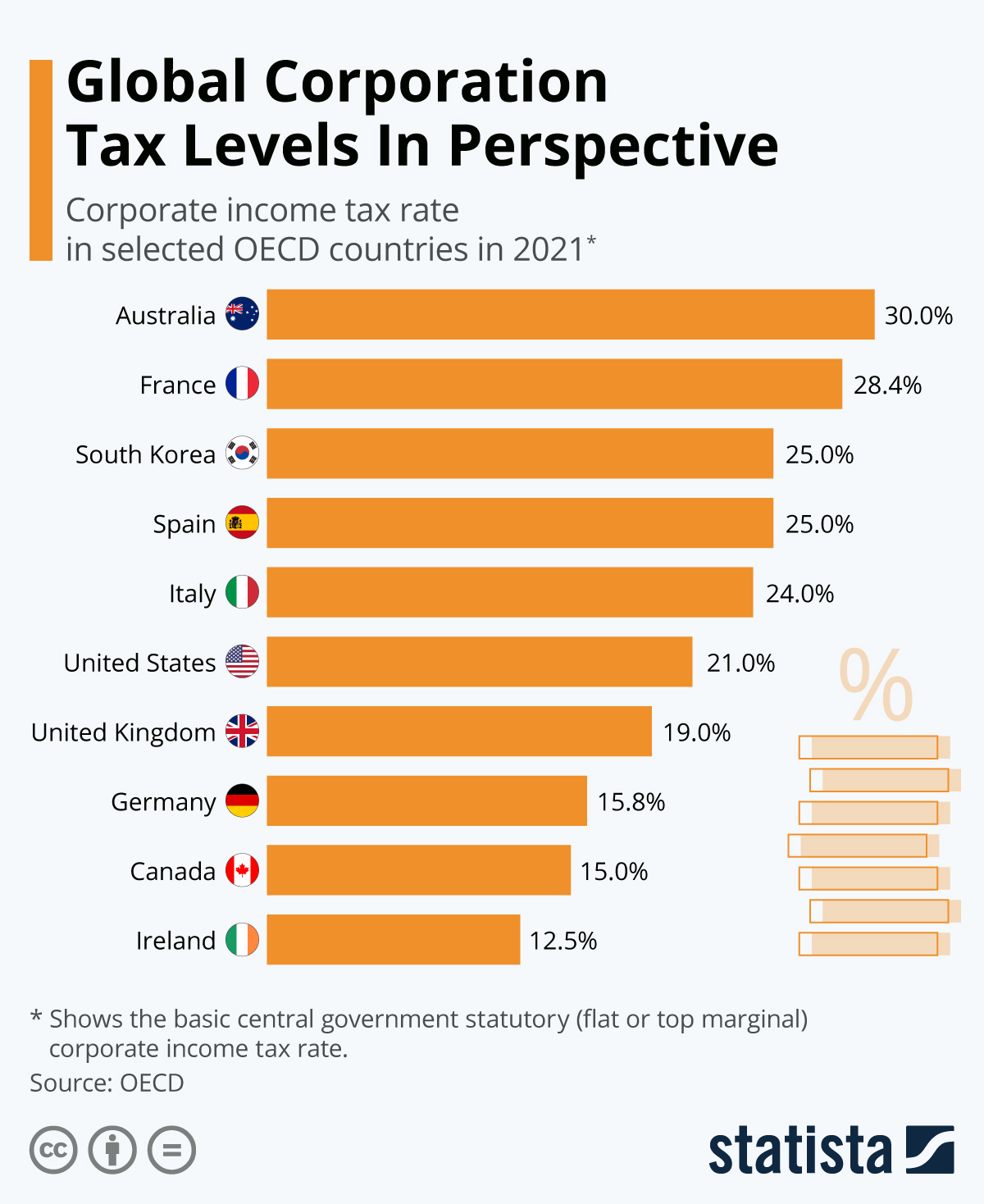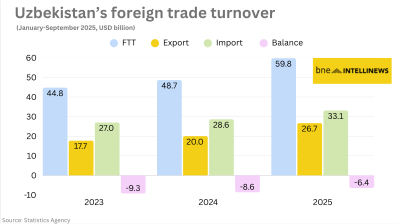The Tax Foundation has released its International Tax Competitiveness Index which highlights the most competitive tax rates in different countries around the world. For the 11th consecutive year, Estonia had the highest score in the index. This was mainly due to its 20 percent tax on corporate profit only applied to distributed profits, a 20 percent tax on individual income not applying to personal dividend income, a property tax only applying to the value of land and finally an exemption on 100 percent of foreign profits earned by domestic corporations.
By comparison, France, Italy and Colombia were the least competitive countries in the index that takes into account the 38 OECD countries. While France and Colombia score low on their corporate income tax rates (meaning they collect a lot of them), Italy received bad marks for its consumption and property taxes. All three countries also levy wealth taxes.
Even though the United States improved its score this year, it was still only in the ranking's midfield, coming in 15th position with a score of 72.5 out of 100, up from rank 16 last year. Better expensing for corporate investments in industrial plants and machinery was lauded, while the country scored relatively poorly on property taxes and cross-border taxes. The later received the worst grades as the United States is one of the few countries which continued to tax the global income of companies to a high degree. However, as corporate minimum tax rules are implemented globally, this playing field is leveling.
For countries all over the world, a well-structured corporate tax rate is important in promoting economic development, boosting revenue and ultimately determining overall economic performance. Businesses tend to invest in countries where they can expect the highest rate of return and the most successful nations in the index were the ones with the lowest corporate tax rates as well as with the easiest processes for companies to comply with local tax laws. The research measured two core aspects of tax policy, competitiveness and neutrality, across corporate, individual, consumption, property and cross-border taxes.
 You will find more infographics at Statista
You will find more infographics at Statista
Since the turn of this century, OECD countries have experienced a marked trend of declining corporate tax rates. The average corporate income tax rate applied by OECD members fell from about 33% in 2000 to between 24 and 25% in recent years (24.2 in 2025). As the organization's data shows, France maintains the highest combined corporate tax rate in the OECD, at 36.1% in 2025, followed by Colombia (35%), while the lowest marginal corporate tax rate is found in Hungary, at 9%, followed by Ireland (12.5%).
In 2021, a major international agreement was reached under the guidance of the OECD to establish a minimum corporate tax rate of 15% on the profits of multinational companies, aimed at reducing tax inequalities and preventing profit shifting to low-tax territories. Since then, many jurisdictions have taken steps towards the implementation of these rules into their domestic law, with the global minimum tax starting to apply from the beginning of 2024, although two countries (Hungary and Ireland) are yet to meet this requirement.
The challenge for OECD countries remains to strike a balance between economic attractiveness and tax fairness, while minimizing competitive distortions. Advocates of low tax rates argue that they attract foreign investment and boost competitiveness, whereas critics point out that such rates can reduce useful public revenue (public services, social policies funding) and exacerbate inequality, particularly when large corporations benefit from preferential regime and aggressive tax optimization.
 You will find more infographics at Statista
You will find more infographics at Statista
Data

EU rare earth supply dominated by China and Russia - Eurostat
The European Union remains heavily dependent on China and Russia for rare earth imports, with nearly three-quarters of its supply sourced from the two countries in 2024, according to data published by Eurostat and reported by Statista.

Turkey's central bank remains cautious, delivers 100bp rate cut
Decision comes on eve of next hearing in trial that could dislodge leadership of opposition CHP party.

Polish retail sales return to solid growth in September
Polish retail sales grew 6.4% year on year in constant prices in September, picking up from a 3.1% y/y rise in August, the statistics office GUS said.

Uzbekistan’s nine-month foreign trade nears $60bn
Export growth of 33% and import expansion of 16% y/y produce $6.4bn deficit.



